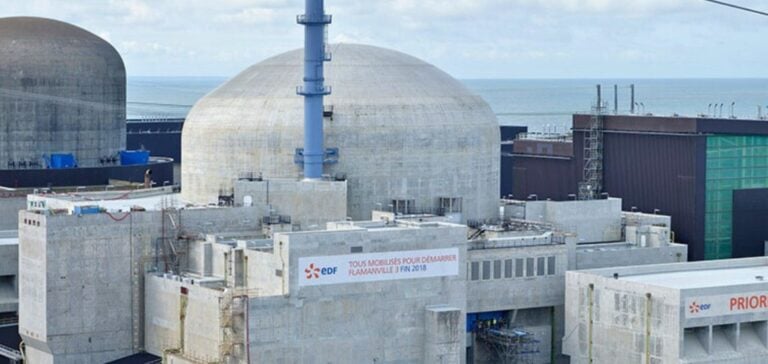On July 8, 2024, the associations Sortir du nucléaire, Criirad, Crilan, Global Chance and Robin des Bois lodged an appeal with the Conseil d’État against the decision of the French Nuclear Safety Authority (ASN) on May 7 to authorize the commissioning of the EPR reactor.
They consider that this decision, taken after numerous delays and technical complications, is premature and calls for an in-depth reassessment.
At the same time, the associations are filing a complaint against X in Cherbourg and Paris, with the aim of clarifying irregularities detected in parts of the reactor.
Greenpeace joined both actions, while France Nature Environnement Normandie took part only in the criminal action.
They denounce the fact that commissioning has been accelerated to avoid the legal consequences of further postponement.
Technical and critical issues
Commissioning of the EPR reactor at Flamanville, France, operated by EDF, has been completed after a complex project marked by major delays.
The reactor was originally scheduled to go into service in 2012, but technical problems have continually prolonged the project.
The ASN gave the go-ahead in May 2024, at the end of a difficult period for the site, with accusations that the decision had been rushed to meet strict deadlines.
The associations criticize the ASN’s decision as being influenced by time pressures, claiming that the ASN’s new revelations about problems of forgery, falsification and fraud in the nuclear industry are aggravating the situation.
In January 2024, ASN revealed that it had reported three cases of proven fraud in 2023, one of which concerned a supplier to the EPR construction site.
Implications for the nuclear sector
The legal actions are aimed not only at suspending the commissioning of the reactor, but also at guaranteeing the safety and conformity of the equipment.
The associations hope that these proceedings will lead to a reassessment of control practices in the nuclear industry.
The decision of the Conseil d’Etat and the outcome of the criminal investigations will be crucial in determining the future of the EPR project, and for the future of regulatory practices in the sector.
This challenge highlights important issues concerning the management of nuclear projects in France, and raises questions about the transparency and effectiveness of safety controls.
The outcome of the legal proceedings could have a significant impact on public and professional perceptions of future nuclear projects.
Anti-nuclear associations are seeking to draw attention to the potential risks associated with the commissioning of the EPR, and to demand full transparency in the handling of technical and regulatory issues.






















